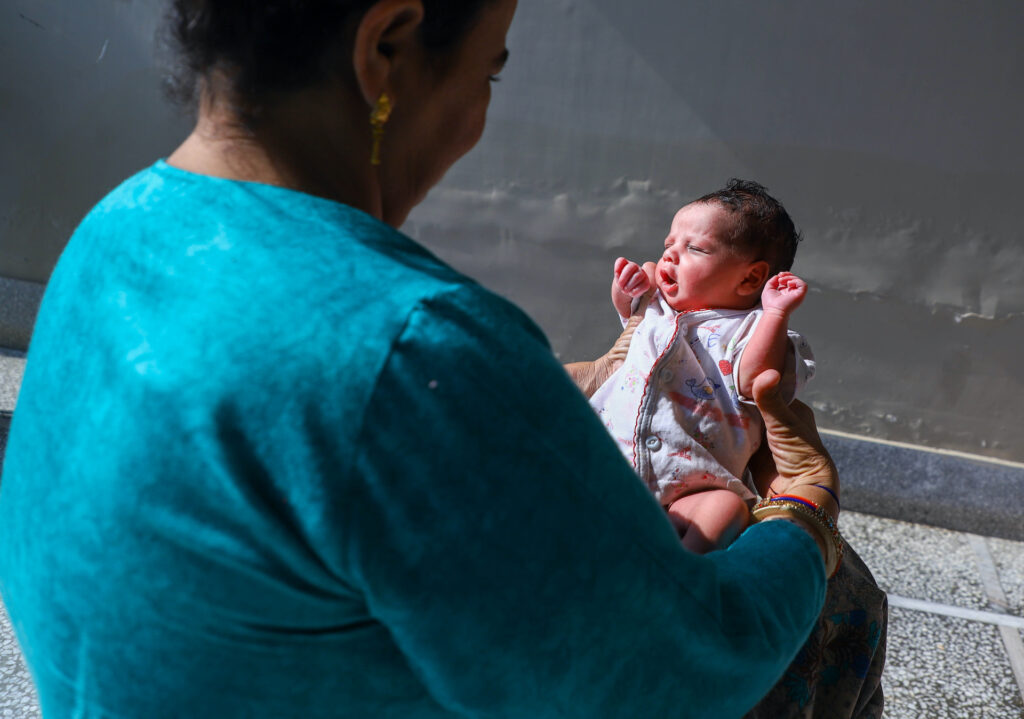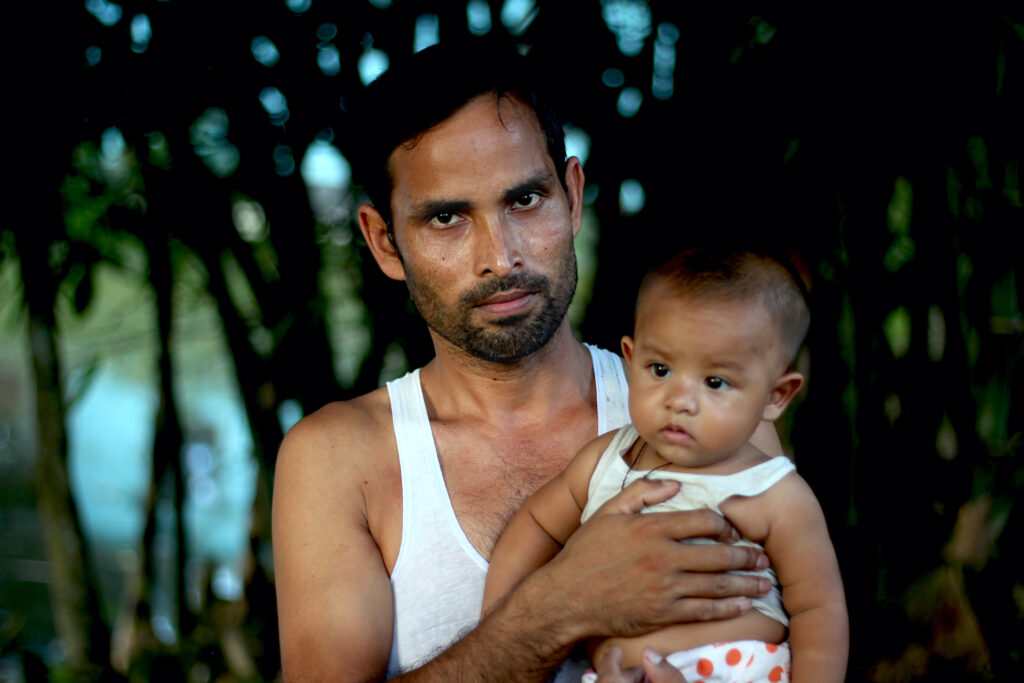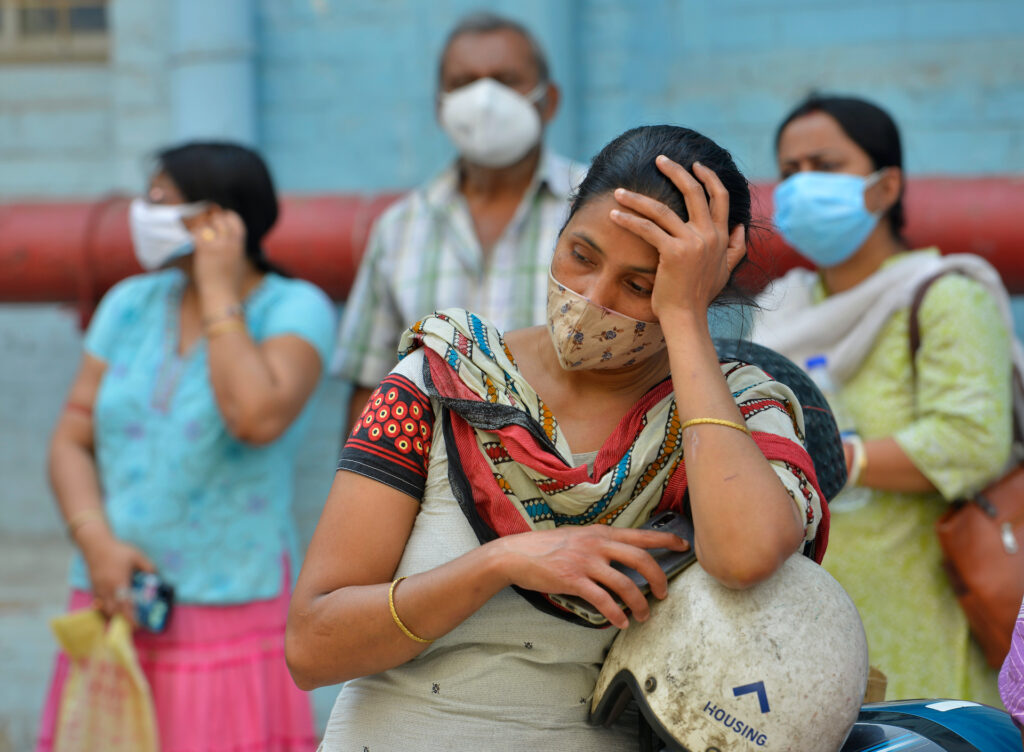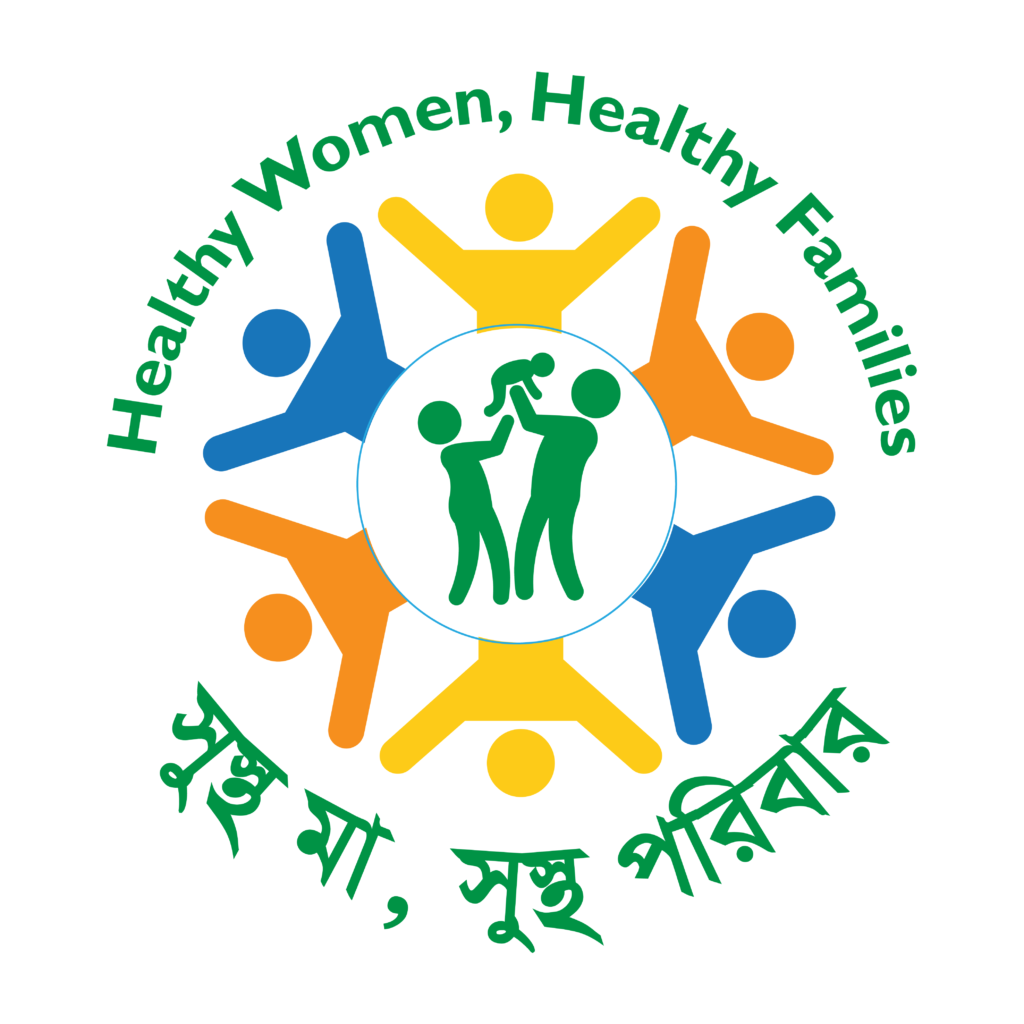Reimagining the maternal health journey in Bangladesh
In Healthy Women, Healthy Families, together with Management Sciences for Health, we build upon our previous expertise with group antenatal care (GANC) in Uganda, Kenya, and Guatemala, where we designed group care models for pregnant women in rural areas. In our newest project, we shift our focus to first-time parents in urban communities in Gazipur’s informal settlements, where most women don’t receive the minimum number of antenatal (ANC) and postnatal (PNC) care visits recommended by the World Health Organisation (WHO). In Bangladesh, we are expanding the model from antenatal to perinatal period, covering the time during and after pregnancy, while bringing men and other family members into the design.
In group perinatal care, women attend healthcare visits together, participating in group counselling and discussion sessions. In addition to offering more counselling and information, this approach provides an opportunity for developing bonds between women, bolstering social support that can extend well beyond the group sessions. Our experience has shown that group care can improve women’s service experience, which, in turn, increases their likelihood to attend the recommended number of ANC and PNC visits.
When creating new group care services, it’s essential that the models are responsive to the lived experience and cultural context of the service users. We are working remotely with our local partner, BRAC, to transfer necessary skills in the human-centered design process, including conducting rapid design research and data synthesis. This approach enables us to gain insights into the current reality of maternal services from the perspectives of first-time pregnant women and recent first-time parents to community influencers and service providers. Based on the gathered insights, we are co-creating a group perinatal care model together with women and their husbands, other family members, and systems actors.
Here we share some of the gathered insights on parenthood, fatherhood, and the current pandemic’s effect on service provision in Bangladesh. Based on these insights, we have identified opportunities that inform and guide our work in creating new, improved group perinatal care services.
Parenthood is wrought with complex emotions
“I heard the news from my wife, and I lost myself in happiness. Really, this is not something which is expressible.” – Recent first-time father
Pregnancy news is considered a great joy, but at the same time, it marks the beginning of a complex emotional journey with increased responsibilities and worries related to the delivery and well-being of the baby as well as financial and employment concerns. Our research found that there is a need to normalise the negative emotions surrounding parenthood and provide support for both expectant parents to navigate this life transition, decrease stigma related to perinatal depression, and alleviate feelings of inadequacy. At the same time, it’s important to leverage the positive attitudes toward approaching parenthood to pursue improved health outcomes for the whole family.

“When I don’t understand or get something, I can ask my health workers twice or thrice. But they don’t get bothered and answer me clearly.” – First-time pregnant woman
One pathway to navigate through the many physical, psychological, and social changes related to approaching motherhood is creating a personal and trusting relationship between the expectant mothers and perinatal care providers. A sister-like relationship was found to convince women about the good quality of the services, encouraging them to continue accessing care. We found opportunities to build personal relationships early with couples to communicate pregnancy-related information before conception, setting the stage for positive parenthood.
Couples increasingly see parenthood as a joint venture
“My husband will manage everything. As the baby is not mine alone, we both have duties to perform. We’ll have to take care of our newborn baby together.” – First-time pregnant woman
Based on our research, it appears that young couples are increasingly discussing parenthood as a joint venture with a more equal sharing of parental responsibilities. This allows men to take an active role in supporting the wives through the pregnancy and helping out with household chores, preparing for the birth, and caring for their newborn. This collaborative attitude provides opportunities for couples to discuss family planning and contraception together, considering the increased financial, physical, and emotional strains and the ideal number of children.

“I mostly wasn’t allowed inside. The patient and the doctor used to have their consultations while I was waiting outside.” – Recent first-time father
Even though parental responsibilities are increasingly shared, some men feel excluded from health consultations as their role is limited to accompanying their pregnant wives to the facility. This prevents them from properly understanding what the pregnant wife is experiencing and preparing for their upcoming responsibilities to help care for the newborn. At the same time, expectant fathers expressed a desire to be more involved in the pregnancy journey. They wanted to learn more and pass on information on pregnancy-related matters. These findings present the opportunity to rethink the counselling directed towards husbands to make them feel included in the service experience and enable men to better support their wives throughout the antenatal and postnatal period.
Compassion is essential during COVID-19
“I couldn’t even go to hospital and take services when I had a fever as I didn’t have much money to afford and hire a rickshaw or other vehicles.” – First-time pregnant woman
Living under the COVID-19 crisis has put a strain on both the expecting parents and service providers. The resulting financial constraints have forced first-time parents to prioritise and cut back on services out of necessity, forgoing regular health check-ups during pregnancy even when they are considered important. Some service providers have adjusted their fees to respond to the new situation, but reductions in service fees are often unclear for the expectant parents. When moving from individual consultations to the group-based model, there is an added opportunity to restructure the financial model by leveraging economies of scale to lower user fees.

“I am not only putting my life at stake but also my family members’ lives because when I come from outside I might bring the virus home” – a Shastya Kormi (health worker)
The pandemic has also instilled fear into the antenatal care service experience since many families are reluctant to let health workers enter their homes to mitigate risk against contracting the virus, leading to loss of privacy in counselling sessions or forgoing the service provision altogether. Even with heightened safety measures in place, service providers need to pay attention to a compassionate manner when interacting with expectant parents to counterbalance the potentially alienating effects of face masks and physical distancing. To optimise the service experience, increased emphasis needs to be placed on supporting the psychological well-being of both the first-time parents and health providers.
Next steps in designing the new perinatal care model
Based on the above insights, the project partners are now co-creating adaptations to the existing group care model and testing prototypes of new service components. This is done in close collaboration with a variety of stakeholders, including young first-time parents and health workers, to make sure that those for whom we are designing the service are an integral part of the process.
We continue to build BRAC’s skills in human-centered design for them to achieve intermediate-level competency through a learning-by-doing approach. After the finalisation of the group perinatal care model, BRAC will begin implementing it in their programmes. Scope’s role is to check back in at key moments throughout the implementation process to see whether there are still elements that need to be improved or added to guarantee the model’s people-centricity and adaption to the context.
Read more in the Healthy Women, Healthy Families: Insights and Opportunities Report (PDF 34MB)
